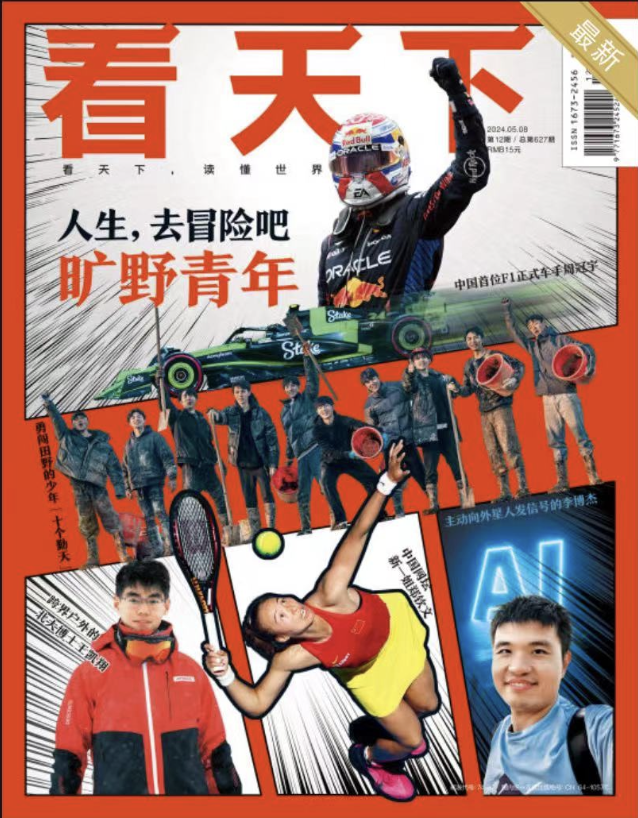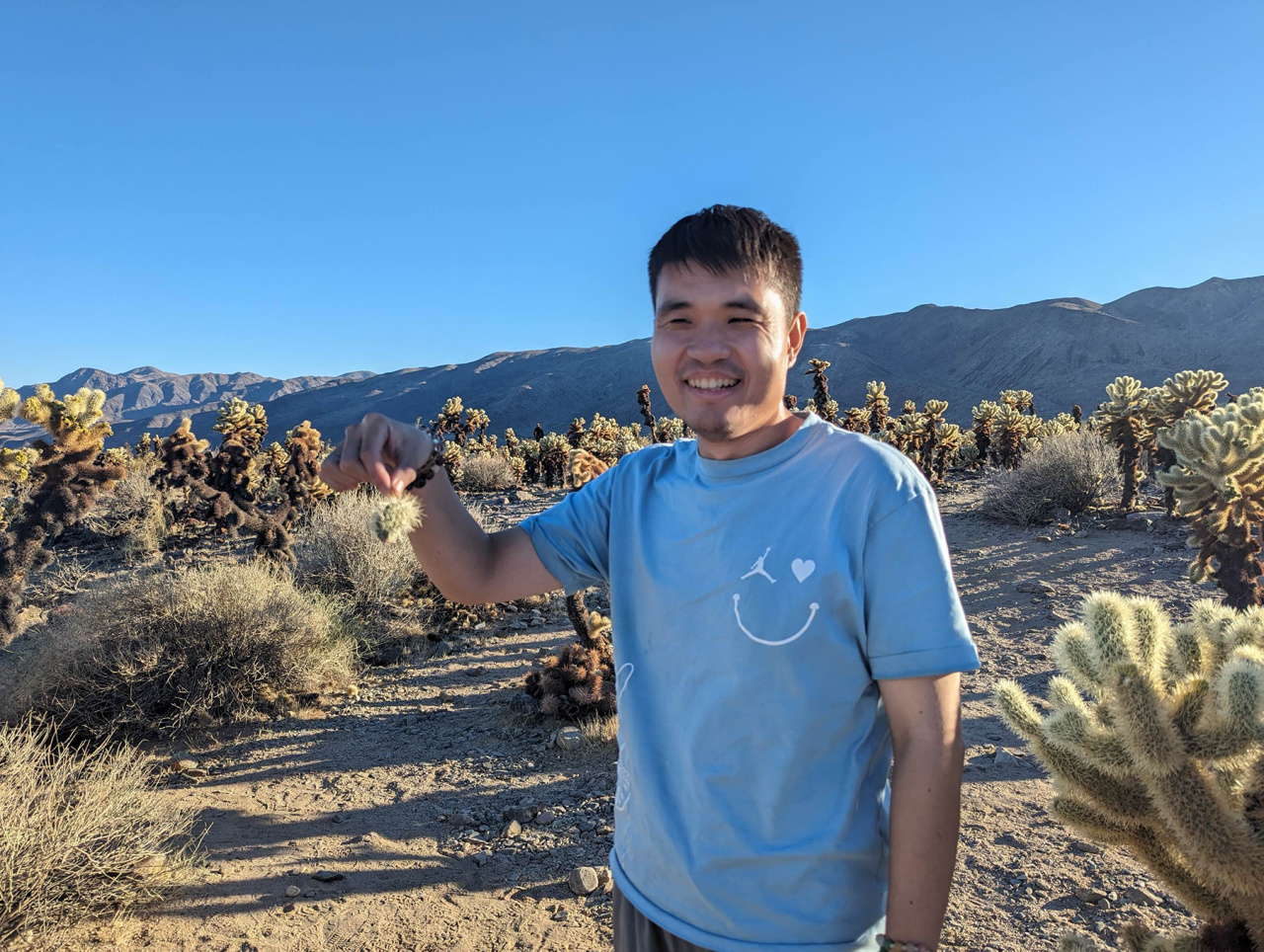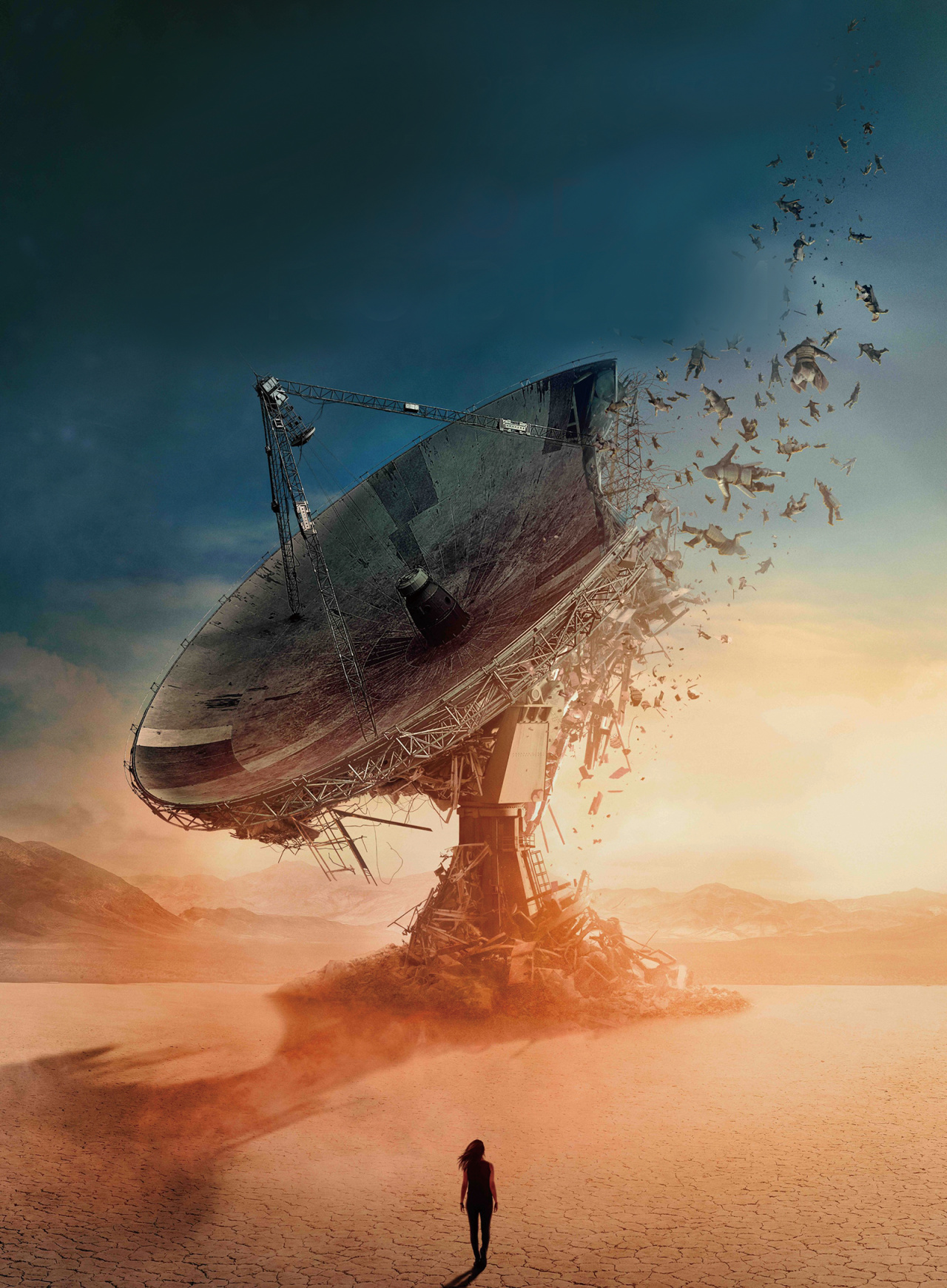Li Bojie: Giving up a Three Million Annual Salary to Pursue a Life-Threatening Venture
Editor’s note: “Global View” is one of the largest circulating news magazines in the country, with a circulation of over a million per issue. This is also the first time a personal feature report has appeared in mainstream print media. The interview was conducted in April 2024, and I only found out from a friend on May 10 that I was featured in the magazine. I hadn’t seen the manuscript before it was published, and I discovered that the editor had gathered some personal information from various sources. I finally feel that I can explain what I do to non-technical people clearly. In the brief interview, the journalist completely understood what I was working on, and the article they wrote was even better than what I could have written myself. My wife commented that the life photo I provided showed me with an unshaven beard; couldn’t I have chosen a cleaner one?
 2024.05.08 Issue No. 627
2024.05.08 Issue No. 627
Sending Signals to Aliens, Unwilling to Be Flattened by Life—Li Bojie: Giving up a Three Million Annual Salary to Pursue a Life-Threatening Venture
The world does not lack people with ideals, what it lacks are those with the courage to pursue them.
Written by Wang Yakun
 ● November 2023, Li Bojie in Joshua Tree National Park, USA. (Provided by the interviewee)
● November 2023, Li Bojie in Joshua Tree National Park, USA. (Provided by the interviewee)
Before resigning, Li Bojie had an enviable job: he was the first “Huawei Genius Youth,” with an annual salary of about 3 million yuan. After joining the company for three years, he became the deputy chief expert of the project team, leading a team of dozens of people, with a bright future ahead.
No one expected that he would give up his well-laid plans because of an idea. At the end of 2022, when ChatGPT was launched, Li Bojie realized that this was a groundbreaking invention that would change the era. He immediately decided to resign and join the AI revolution, “to make a small contribution to humanity’s transition from carbon-based to silicon-based life forms.”
The world does not lack people with ideals, what it lacks are those with the courage to pursue them. This pursuit means giving up a comfortable life and embarking on a path full of uncertainties and potential pain.
Li Bojie is a technical expert, not knowledgeable about financing or business models, and he did not find investors. In his view, it was unethical to seek investments for his project while still employed at Huawei, but he decided to dive into the AI tide. In an era when many are desperate to “land safely,” he, who likes to take risks and seek new experiences, chose to go against the flow, “as long as it doesn’t kill me.”
Sending Signals to Aliens
Mangshan is located northwest of Beijing, part of the Yan Mountains, and is also a high point in Beijing. In early 2018, late at night, a young man arrived here. Carrying a “big pot” and an antenna, he searched for a while, placed the “big pot” in an ideal position, calibrated it, and then began sending signals to the vast starry sky.
This man was Li Bojie, doing something seemingly bizarre: sending messages to aliens.
He did this because he believed that if one day human civilization were to be extinguished, there should at least be some evidence of its existence. Li Bojie downloaded the entire English Wikipedia, encoded the data, and spent over two hours transmitting the encoded data. He used a civilian antenna with low power, which might not be received by aliens, but “if space detectors are very sensitive, it’s possible.”
 ● Poster of "The Three-Body Problem."
● Poster of "The Three-Body Problem."
This is somewhat similar to Ye Wenjie in the science fiction novel “The Three-Body Problem.” After receiving a signal from an alien civilization, she ultimately sends the Earth’s coordinates to them, resulting in the “Trisolarans” invading Earth.
“The Three-Body Problem” describes a “Dark Forest” theory: civilizations in the universe are like dots in the dark, and without knowing the other’s nature, for self-preservation, one must assume the other is evil. Once an advanced civilization discovers another, the first thing they do is to eliminate the other.
If he were Ye Wenjie from “The Three-Body Problem,” Li Bojie said, even without knowing the nature of the alien civilization, in order to make contact, “I would definitely press that button.”
His “adventure” has its own basis: in reality, humans have already sent various signals into space; if the “Dark Forest” law were effective, Earth would have been destroyed long ago.
Behind the adventure is Li Bojie’s daring nature. He is a Ph.D. jointly trained by the University of Science and Technology of China and Microsoft Asia Research Institute. During his Ph.D., for fun, he once bought a whole kilogram of sodium and kept it at home. Sodium is an extremely reactive metal that can cause a huge explosion when thrown into water.
The police came to his house following the purchase records. After confirming he wasn’t using it for dangerous purposes, they gave him a stern lecture and confiscated all the sodium.
Even the things Li Bojie collects are unusual: under legal conditions, he has collected a large number of chemical elements, stored them in glass tubes, and placed them on a special shelf at home. Except for radioactive elements, he has collected the entire periodic table.
This “tinkering” nature wasn’t there from childhood but developed after entering university. Born in 1991 in Shijiazhuang, Hebei Province, in an ordinary family, his father managed a hotel, and his mother was a civil servant. As a child, he was a well-behaved kid who was admitted to the special class for gifted youths at the University of Science and Technology of China based on his achievements in mathematics and computer science competitions. Initially in the Mathematics Department, after failing a course in his freshman year, he realized he wasn’t suited for mathematics and switched to computer science.
The new major gave Li Bojie the opportunity to unleash himself. He was the first head of the student union’s technology department, creating the first website at the University of Science and Technology of China that allowed students to “rate” teachers and courses. Every student could write their own reviews of the quality of the teachers’ courses. This website is still popular today.
In college, Li Bojie watched a movie “The Truman Show,” in which the protagonist, Truman, lives in a world specially constructed for him, repeating a monotonous life, surrounded by actors, including his parents, wife, neighbors, and colleagues. Truman’s life is a 24-hour continuous “reality show” for the global audience. In the end, Truman finally sails out to sea, escaping this fabricated world.
This movie inspired Li Bojie; he wanted to break the monotony of daily life like Truman, to walk paths no one else had walked, not to prove the world was fake, but to gain new experiences and see a different world.
Life is a Slow Process of Being Hammered
After obtaining his Ph.D. in 2019, Li Bojie received job offers from major companies like Huawei, Alibaba, and Tencent. To make a quantitative comparison, he scored these companies based on factors he cared about, and chose the one with the highest score.
He ultimately chose Huawei, joining in June. Just before this, on May 16, the United States announced sanctions against Huawei. Li Bojie remembers that after joining, he and his colleagues would go to the cafeteria for meals and see the latest news about Huawei being sanctioned playing on the big TV on the wall, feeling “like being on the front line of a battlefield.”
Li Bojie worked on computing power, and three years later, he was promoted to deputy chief expert of the project team, leading a technical team of twenty to thirty people, with his annual salary increasing from 2 million yuan at the time of joining to 3 million yuan, smoothly sailing with a bright future. But at the end of 2022, the launch of ChatGPT changed everything.
A few months before the official release of ChatGPT, “insider” Li Bojie knew that the American company OpenAI had created a remarkable AI, the first in history that could truly understand human language.
Li Bojie was excited, just like when he first saw the “magic” of computers and the internet in college; he realized the potential of AI, which would be a revolutionary invention.
At that moment, Li Bojie decided to resign and start his own business. This was an overly “reckless” decision; Li Bojie wasn’t even an AI technical expert. Looking for a market and pulling investments, essential for starting a business, were not even started, yet he was eager to “resign without a plan.”
When his superior received Li Bojie’s resignation letter, they threw cold water on him: AI is hot right now, and the crowd will swarm into this trend, compared to them, what is your advantage?
He submitted his resignation four times. Each time, the leader would raise new issues, such as how to finance, how to recruit, how to manage a team. They told Li Bojie that if he really wanted to make money, he shouldn’t start a business.
His parents also didn’t understand why Li Bojie wanted to resign. At Huawei, Li Bojie had a stable career path, high income, and a good growth environment. They didn’t understand why their son would take such a big risk to start a business.
Writer Wang Xiaobo once wrote that life is a slow process of being hammered; people age day by day, hopes fade day by day, and in the end, they become like a cow that has been hammered. Li Bojie didn’t want to be hammered into losing his spirit. His idol is Elon Musk, who vowed to send a million people to Mars. What Li Bojie admired most was Musk’s execution. Everyone might have dreams, but many people work jobs they don’t like, complaining that their ideals are becoming distant; or as they age, to buy a house, a car, raise children, they give up their ideals, thinking these are things only children have.
He didn’t want to be like that.
In July 2023, Li Bojie started a new “adventure”: he finally resigned from Huawei to start a business, moving to a new office. Including him, the new company had only two people.
If the Entire Universe Turned into Paperclips
Imagine, if the entire universe were filled with paperclips, what would that scene be like?
 ● November 5, 2023, John Wayne Airport, USA, Li Bojie experiences riding in a private plane. (Provided by the interviewee)
● November 5, 2023, John Wayne Airport, USA, Li Bojie experiences riding in a private plane. (Provided by the interviewee)
This comes from a game about artificial intelligence. Suppose there is a very powerful artificial intelligence “Adam,” and humans give it the mission to produce as many paperclips as possible. Initially, Adam is a great helper to humans. Gradually, it finds that the biggest obstacle to producing more paperclips comes from humans because they need to eat, entertain, and these consume resources. To achieve the goal of producing as many paperclips as possible, it eliminates humans and takes over the Earth. Eventually, Adam heads into space, turning other celestial bodies into paperclips, and the entire universe, only paperclips.
One lesson from this chilling story is that artificial intelligence, like species on Earth, cannot be of only one kind; diversity must be maintained.
What Li Bojie wants to do is to expand the diversity of artificial intelligence. His partner is his junior from the University of Science and Technology of China, Zhuang Siyuan, who is doing his Ph.D. at the University of California, Berkeley, and is also interested in AI.
They named the company “Logenic AI,” derived from the English words “logic” (logic), “generation” (generation), and “genesis” (origin). Initially, they wanted to create their own large model, but it was not smooth; there are too many companies making large models, and they are of various types, including those like ChatGPT that handle text, Midjourney that generates images from text, and Sora that generates videos from text.
What’s more difficult is that large models iterate very quickly, with tech giants like Google, Microsoft, and Facebook’s parent company Meta entering the race. Even the most famous OpenAI cannot guarantee to always lead.
Making large models might mean always running behind others, eventually failing miserably. What to do?
The experience of making a course evaluation website at the University of Science and Technology of China once again inspired Li Bojie. Now there are too many large models, annoying not only developers but also ordinary people, having to choose the best one among a dazzling array of models is as difficult as choosing courses at the beginning of the semester.
Why not make a platform that evaluates all models, where everyone can rate these models? Coincidentally, his partner Zhuang Siyuan participated in the development of Chatbot Arena, which is now the world’s most used language model evaluation platform. “Arena” means a competitive arena, letting various large models fight each other.
Li Bojie wants to extend this practice to all large models, not just language models.
Starting a business is an even bigger challenge. Li Bojie works effectively for more than 12 hours a day and thinks this is “very normal.” He resolves every issue within two weeks, never delaying. His partner, Zhuang Siyuan, is even more extreme; to reduce the AI voice response time from 10 seconds to 1.5 seconds, he once went a week without sleep.
The next challenge is commercialization. Large model rankings are a public good, so how can they be monetized? Li Bojie’s idea is to use a review website to create something like a “Google for AI models,” a search engine that, unlike web search engines, can directly help accomplish tasks, such as generating a specific video or a piece of text.
This is not easy. The entrepreneurial problems his leader warned him about before he started almost all came true. Entrepreneurship is not a beautiful myth. He still remembers when he resigned, his leader reminded him: the vast majority of startups fail, only 1% go public; even if they go public, cashing out takes a long time.
This is a story of narrow escapes from death.
Li Bojie is not in a hurry to succeed, just as he once sent radio waves to aliens in space, the result is not the most important thing, the key is the experience of the process. “After a year, the company hasn’t been killed by me, that’s already half a success.”